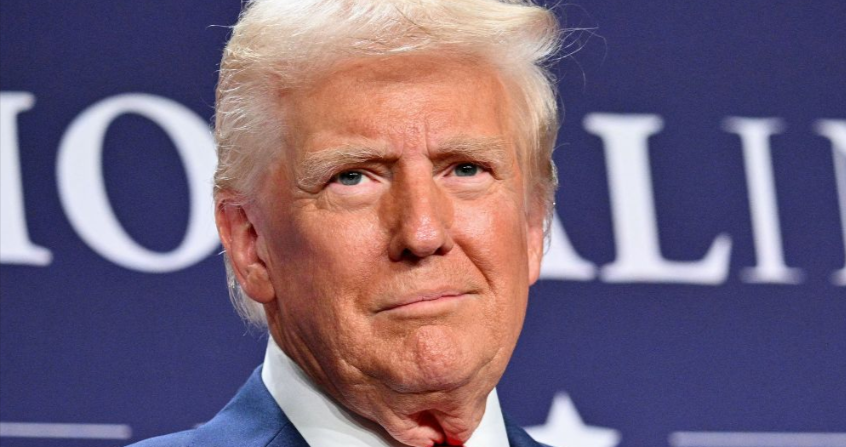Trump Does the Unthinkable - Officially Calls for End to Income Tax, May Be First POTUS in History to Do So

One thing is clear just over a week into Donald Trump’s second term: He is aiming high.
On Monday, the president appeared to suggest eliminating income taxes entirely in favor of tariffs, a system that historically funded the federal government until the early 20th century.
During his campaign, Trump advocated for reducing reliance on income-based taxation, proposing the elimination of taxes on tips, overtime pay, and Social Security benefits.
Speaking to Republican lawmakers at his Doral resort in Miami, Florida, Trump declared, “America is going to be very rich again, and it’s going to happen very quickly.”
“It’s time for the United States to return to the system that made us richer and more powerful than ever before,” he added.
Trump pointed out that from 1870 to 1913, tariffs primarily funded the federal government, describing it as “the richest period in the history of the United States.”
The Sixteenth Amendment, ratified in 1913, granted the federal government the power to levy income taxes after an 1895 Supreme Court decision struck down a previous attempt by Congress to implement such a tax. However, while the amendment gives Congress the authority to impose income taxes, it does not require them to do so.
On Monday, Trump argued, “Instead of taxing our citizens to enrich foreign nations, we should be tariffing and taxing foreign nations to enrich our citizens.”
PRESIDENT TRUMP: "It's time for the United States to return to the system that made us richer and more powerful than ever before... Instead of taxing our citizens to enrich foreign nations, we should be tariffing and taxing foreign nations to enrich our citizens." pic.twitter.com/q4svY9JL2Y
— Trump War Room (@TrumpWarRoom) January 27, 2025
While he stopped short of explicitly calling for the complete removal of income taxes, his remarks strongly implied that such a shift is his ultimate goal.
Tariffs, which are taxes on imported goods paid by the importer to the federal government, played a significant role in Trump’s first term. He imposed tariffs on a range of Chinese products, with rates reaching as high as 25 percent. When Joe Biden took office, he opted to keep those tariffs in place.
According to the Tax Foundation, as of March 2024, tariffs had generated $233 billion in revenue since 2018.
During his campaign, Trump proposed a universal tariff of 10 to 20 percent on all imported goods, with even steeper rates for Chinese imports, surpassing the current 25 percent threshold.
The Tax Foundation estimated that if Trump’s tariff plan were enacted, it could generate roughly $330 billion in annual revenue, increasing to $430 billion by 2033.
In comparison, the federal government collected approximately $2.2 trillion in individual income tax revenue during fiscal year 2023, making it unlikely that tariffs alone could fully replace the income tax system.
However, the revenue from tariffs might be sufficient to support Trump’s proposed tax cuts on tips, overtime, and Social Security benefits.
As the debate over tax reform unfolds, Capitol Hill will be the battleground where Republicans push for legislation building on the 2017 Tax Cuts and Jobs Act.
Regardless of the outcome, Trump deserves credit for prompting lawmakers to rethink how the federal government should be funded.